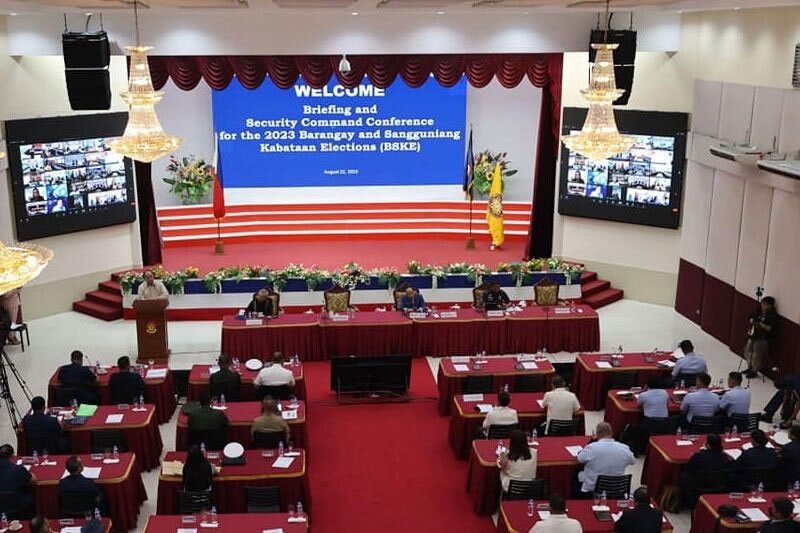Local governments


The barangay election is supposed to be an exercise of democracy at the grassroots. Perhaps, it is and perhaps it is here where our problems with Filipino-style democracy begins. Unfortunately, many of us are not even keen on participating in it. In the barangay where I am registered as a voter, everyone is running unopposed.
That’s how it is in middle and upper middle-class communities. We would rather go out of town on a long weekend than vote for barangay officials. Many of us do not even know they exist until one day we need a barangay certificate for one thing or another.
During the pandemic, the barangay officials carried out the orders to isolate COVID patients, check on their recovery, issue passes to go out of our homes to buy groceries and many such things. To get vaccinated, we have to go to the barangay office to find out the schedules and register our names.
I was recently in Cebu and I noticed that they are taking their barangay elections seriously. Not only are there campaign materials all over, they have public rallies late into the night that attracted a decent number of people. At the grassroots, not only are barangay positions honorable, it could be profitable too and for some, to die for.
The official pay is about P30,000 a month for the barangay captain but the perks and the power that comes with it can be tempting. A barangay gets a share of the LGU budget. Some barangays are so rich like Bel Air in Makati, that they have run out of ideas on how to build new arches in their subdivision gates. But even the poorer barangays have access to LGU funds plus use of a barangay ambulance that can traverse the bus lane on EDSA.
The budget department has allocated P871.3 billion for national tax allotment or NTA for LGUs for 2024, a 6.2 percent increase compared to this year. But this excludes funds for programs under national government agencies implemented across regions. So, LGUs will receive a total of P1.008 trillion, equivalent to 17.5 percent of the proposed 2024 national budget.
The proposed total NTA shares allocate P200.416 billion to provinces, P201.2 billion to cities, P295.4 billion to municipalities, and P174.2 billion to barangays. Then there are apparently a few billions more to cover the Barangay Development Program (BDP) and the share of barangays in the funding for National Task Force to End Local Communist Armed Conflict (NTF-ELCAC) for about 600 barangays.
So, may pera sa barangay. That’s why barangay elections are hotly contested. Same is true with the Sangguniang Kabataan or SK. Over half a million candidates are running. The SK was created by the late president Ferdinand Marcos Sr. to give Imee Marcos a role in the martial law government. There are those who now feel it only provides early indoctrination in our rotten political system and practices.
Rotten Pinoy politics start at the barangay level. Some months ago, my colleague Cito Beltran who writes in the Op/Ed page, related a complaint that reached him about some barangay officials imposing a barangay tax on poultry owners for every day-old chick they bring into their farms. The barangay “tax” could be anywhere from P10,000 to P20,000 per delivery, cash before delivery.
This puts poultry owners in a bind as they have to accept chick deliveries in batches of 50 to 150,000 chicks. The barangay will not allow delivery without a “delivery acceptance certificate.” That means the undelivered chicks will be destroyed, production schedule disrupted, contract growers will be unable to meet commitment and financial projections ruined. Losses of P150,000 on average on chicks alone. Some have decided to just close down the poultry farm.
Of course, this is a disincentive for small entrepreneurs trying to make a living from a family farm. But for the barangay officials, they believe they are allowed to do it under current local autonomy laws. They may be wrong about that but who will a poor chicken farmer run to for help?
Then there are the LGUs who impose all sorts of fees on businesses in their locality. In Boracay, the Malay, Aklan LGU has for years been imposing a so-called environmental tax. But the billions of pesos collected since 2005 didn’t help keep Boracay clean. It had to be closed down for six months a few years ago because its environment is so polluted as to endanger the health of visitors.
I googled the item and found a news report about the National Bureau of Investigation filing graft and malversation charges against several local officials in Malay, before the Ombudsman for misusing funds from environmental fees collected from tourists from 2009 to 2017.
But the environmental fee scam is apparently a convenient scheme for an LGU to raise funds. An LGU in a locality in Cebu that has lots of tourist resorts also wants to charge such a fee. But this time, they want the resorts and hotels to collect from the visitors. At least in Boracay, the Malay LGU did its own collection.
Maybe a tourist wouldn’t mind the extra P100 being charged but it could also adversely affect the tourism industry which is in stiff competition with Thailand and Vietnam, among others. Maybe the big hotels can just absorb this fee but it will take a very big chunk of the operating margin for those with room rates less than P4,000 net. Many of these smaller hotels will be driven out of business.
But even for the bigger resorts, potential investors will hesitate once they realize that any local government can just arbitrarily take away 10 to 20 percent of a hotel’s bottom line profit. Investors will understand that after they invest, they will be subject to continuing harassment from various government bodies and officials.
Then there is this LGU that is requiring pig farms in their area to get fire extinguishers from their recommended supplier costing P1.2 million. Or no mayor’s permit. Pig shit is volatile enough to ignite. Aren’t some pig farms using biogas from fermented pig shit?
E ano naman? Kung magka sunog, eh di lechon. Hay, buhay Pinoy!
Boo Chanco’s email address is [email protected]. Follow him on X (formerly Twitter) @boochanco.
- Latest
- Trending




























